The 47th convention was a great success! Please check back for information about next year’s convention.
“The Eucharist,” St. John Damascene wrote, “is a fire that inflames us.” Yet, recent surveys of Catholics suggest that a diminishing number of the faithful understand why the Eucharist is a fire or how it should inflame the Church. The 2025 convention of the Fellowship of Catholic Scholars will address how we might ponder this fire anew. Can faith in the Eucharist withstand the challenges of modern science? Are Eucharistic miracles believable? In what way is the Eucharist the source and summit not only of the Christian life in general, but also of a Catholic university in particular? Is there a psychology or sociology of Eucharistic faith? What kind of music and architecture provide the best setting for Eucharistic celebration? How might canon law help us to understand and to live our faith in the Eucharist more fully? How might we make sense of the liturgical disputes of our time? The 2025 convention on the Eucharist will bring together distinguished scholars from a variety of disciplines to help us more fully understand this central mystery of our faith.
Come explore these questions with accomplished Catholic professionals.

Gerald P. Boersma is Professor of Theology at Ave Maria University and Humboldt Fellow at the University of Tübingen. Boersma is a Catholic systematic theologian whose writings focus especially on the thought of Augustine and Thomas Aquinas. He is author of Augustine’s Early Theology of Image (Oxford, 2016) and numerous essays as journal articles and book chapters devoted to theology, philosophy, and literary criticism. Prior to coming to Ave Maria University, he taught for five years at St. Bonaventure University. He has held fellowships at the Villanova University and the University of Tübingen.
Title: Liquefaction and Love: The Metaphysics of a Eucharistic Miracle
Abstract: Why the liquefaction of blood in Eucharistic miracles? Is there any theological significance to the particular mode of the miracle—the melting of a solid state of congealed blood? My contention is that the liquefaction of blood in such miracles is a conspicuous testament to Aquinas’s teaching about the nature of love, in which liquefaction also plays a pronounced (but underappreciated) role. The miracle of liquefaction is not a sort of magic trick, rather it possesses a profound fittingness, corresponding to the nature of authentic holiness and charity. Liquified blood is a metaphorical and even heuristic attestation to the liquidity of all true love, a principle central to a Thomistic metaphysics of love.

Clinton Brand, PhD, KSG is Associate Professor of English at the University of St. Thomas in Houston, Texas, where he teaches classical, medieval, and Renaissance literature. From 2010 to 2015 he served on the Holy See’s Interdicasterial Commission Anglicanae Traditiones, which was responsible for developing the liturgical provisions of the Apostolic Constitution Anglicanorum Coetibus. Dr. Brand is the editor of St. Gregory’s Prayer Book: A Primer of Catholic Devotions from the English Patrimony (Ignatius Press, 2019). He has published on Shakespeare, Edmund Spenser, George Herbert, Andrew Marvell, John Henry Newman, and T. S. Eliot, among others, as well as on liturgical poetics and on residual Catholicism in post-Reformation English religious culture.
Title: The Ordinariate Use of the Roman Rite: Shared Treasure and Mutual Enrichment
Abstract: This paper aims to characterize the most recent addition to the family of liturgical forms that make up the Roman Rite. Inaugurated with Pope Benedict’s Anglicanorum coetibus (2009), the Ordinariate Usage of the Roman Rite repatriates for the Catholic Church elements of the Anglican liturgical tradition, all conformed to Catholic doctrine and canonical requirements, “as a precious gift nourishing the faith” and “as a treasure to be shared.” This liturgical provision has issued in Divine Worship: The Missal (2015), as well as texts for the Divine Office, all voiced in the sacral, hieratic dialect of the classic Books of Common Prayer, the Coverdale Psalter, and the historic Anglican Missals. Exploring the Ordinariate Form in relation to both the traditional Roman Rite and the modern Roman Rite suggests intriguing possibilities for understanding “mutual enrichment” and a possible “reform of the reform” in an “hermeneutic of continuity” for the future of Catholic worship.
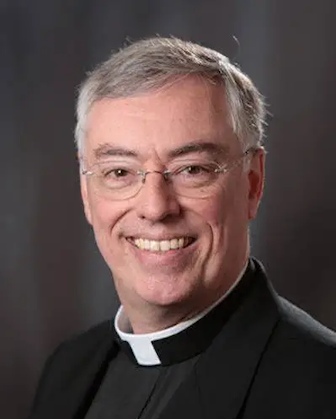
Msgr. Marc B. Caron, S.T.D., is the Director of the Center for Continuing Formation of Priests at St. Mary’s Seminary and University in Baltimore. He is a priest of the Diocese of Portland, Maine, where he served as Vicar General, Moderator of the Curia, chancellor and diocesan Master of Ceremonies. He has also ministered as a pastor and university chaplain. From 2016 to 2020, he was a member of the formation faculty at St. John’s Seminary, Brighton, Massachusetts, where he was also director of liturgy. He received his licentiate degree in liturgical studies from The Catholic University of America in Washington, DC, and the doctoral degree in sacramental theology from the University of St. Mary of the Lake, Mundelein, Illinois. He is the author of a number of articles which have appeared in The Jurist, Worship, Antiphon, Studia canonica and in the Homiletic and Pastoral Review. He is the author of Ceremonial for Priests: A Manual for the Celebration of Mass, Days of the Year, Sacraments and Sacramentals published by Sophia Press. A second book, The Diaconate Revisited: Questions and Developments since Vatican II, is currently in preparation with The Catholic University of America Press.
Title: The Missal of Paul VI and the Roman Liturgical Tradition: Prospects for Reconciliation
Abstract: While the Missal of Paul VI retains a few elements from the historic expression of the Roman rite, it also departs from that tradition in very significant ways. Any attempt to graft the Misssal of 1969 back onto the Roman rite will have to address the missal’s calendar, its lectionary, its edition of the Graduale romanum, its euchology, and its Order for Mass. Such an effort will have to overcome the institutional opposition to any critical assessment of the evolution, form, and substance of the Pauline missal. It will have to recognize the widespread acceptance of and support for the Missal of Paul VI in most American parishes. Most importantly, a new liturgical movement will need to recover the Catholic understanding of the very nature of the worship offered to God in the celebration of the Eucharist.
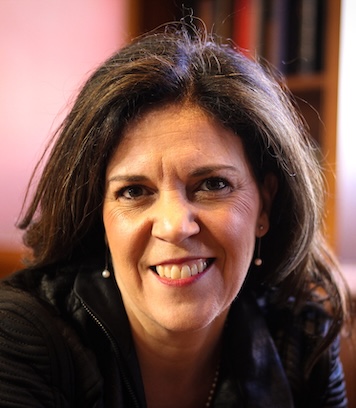
Margarita Mooney Clayton is an Associate Professor of Practical Theology at Princeton Theological Seminary, where she teaches classes such as philosophy of social science; aesthetics and education; and devotion to Mary. She is the Founder and Executive Director of Scala Foundation, a nonprofit whose mission is to restore meaning and purpose in America through beauty in education, culture, and worship. Professor Mooney Clayton received her B.A. in Psychology from Yale University and her M.A. and Ph.D. in Sociology from Princeton University. She has also been on the faculty of Sociology at the University of North Carolina at Chapel Hill and Yale University and has taught for the Pepperdine School of Public Policy. She is presently working on a book manuscript entitled, “Mary and the New Pentecost: Encounters with Mary in Unexpected Places.” She is the author of The Wounds of Beauty: Seven Dialogues on Art and Education (Cluny Media, 2022) The Love of Learning: Seven Dialogues on the Liberal Arts (Cluny Media, 2021), and Faith Makes Us Live: Surviving and Thriving in the Haitian Diaspora (University of California Press, 2019). She has also written for publications that reach wide audiences both inside and outside academia such as Real Clear Policy, Scientific American, Chronicle of Higher Education, First Things, Public Discourse, Hedgehog Review, National Catholic Register, and Church Life Journal.
Title: Marian Feasts and the Mystery of The Eucharist
Abstract: How does liturgical art, music, and liturgical feasts that focus on the Mother of God draw people into the mystery of the Eucharist through their beauty? How can the human emotional response to beautiful liturgical forms be directed to the spiritual culmination of the faith in the celebration of the Eucharistic feast? Throughout Christian history, the sense of the faithful has been that devotion to Mary binds people to Christ. Through beautiful liturgies and feasts, the sensory, emotional, and embodied nature of many forms of Marian devotion can help reveal the meaning of communion at the heart of the Eucharistic feast.
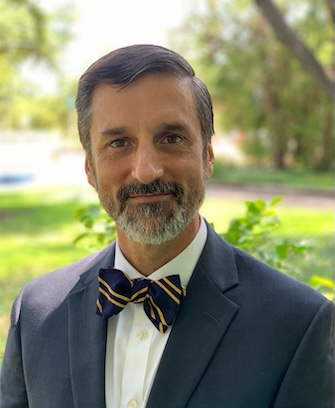
Michael Foley is a Catholic theologian and a Professor of Patristics in the Great Texts Program at Baylor University. He received his Ph.D. in systematic theology from Boston College and works on the thought of Saint Augustine of Hippo and sacred liturgy. Foley is the author of 500 articles and eighteen books, including the four-volume Cassiciacum Dialogues of St. Augustine (Yale University Press, 2019-2020), Lost in Translation: Meditating on the Orations of the Traditional Roman Rite (Angelico Press, 2023) and, on the lighter side, Drinking with the Saints: The Sinner’s Guide to a Holy Happy Hour (Regnery, 2015). Michael and his wife Alexandra have six children, one dog, and 30,000 bees.
Title: The Numinous and the Roman Rite
Abstract: If the Roman Rite is to have any future, it must successfully communicate a sense of what Rudolf Otto called the numinous. In this presentation, I will explain Otto’s concept of numinosity from his classic monograph the Idea of the Holy and then give several examples of how the numinous is conveyed in the traditional Roman Rite.
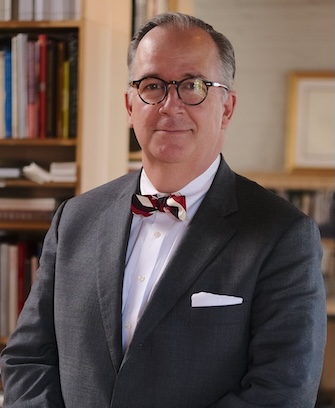
James McCrery is the founding principal of McCrery Architects, PLLC, a firm committed to the design of churches, civic and university buildings, and unique commissions for clients desiring rich, legible meaning incorporated into their buildings. He is an internationally recognized leader in classical architectural design and construction.
James C. McCrery, II is a member of the faculty of the School of Architecture and Planning at the Catholic University of America in Washington, DC where he is the founding Director of the Concentration in Classical Architecture and Urbanism. McCrery is a life member and an executive board member of the Supreme Court Historical Society; a founding member of the National Civic Art Society; a National Design Peer of the U.S. General Services Administration, and in December 2019 was appointed by President Donald J. Trump to the United States Commission of Fine Arts.
Title: The Eucharist, Architecture, and the Catholic Sanctuary
Abstract: Classical architect, James McCrery, will examine the theological and architectural principles that should govern the design of the Catholic sanctuary. Focusing on the placement and form of the altar, tabernacle, and sanctuary, McCrery will draw on the Church’s liturgical tradition and centuries of architectural precedent to present a sanctuary that reflects and reinforces the reality of Christ’s presence in the Eucharist. In an age of liturgical ambiguity and architectural novelty, he proposes a return to clarity, hierarchy, and beauty: elements essential to a sanctuary that is not merely functional, but worthy of the sacred mysteries it houses.

The Rev. Gerald E. Murray, J.C.D. is a canon lawyer and the pastor of Pastor of St. Joseph’s Church in New York City. His newest book (with Diane Montagna) is Calming the Storm: Navigating the Crises Facing the Catholic Church and Society.
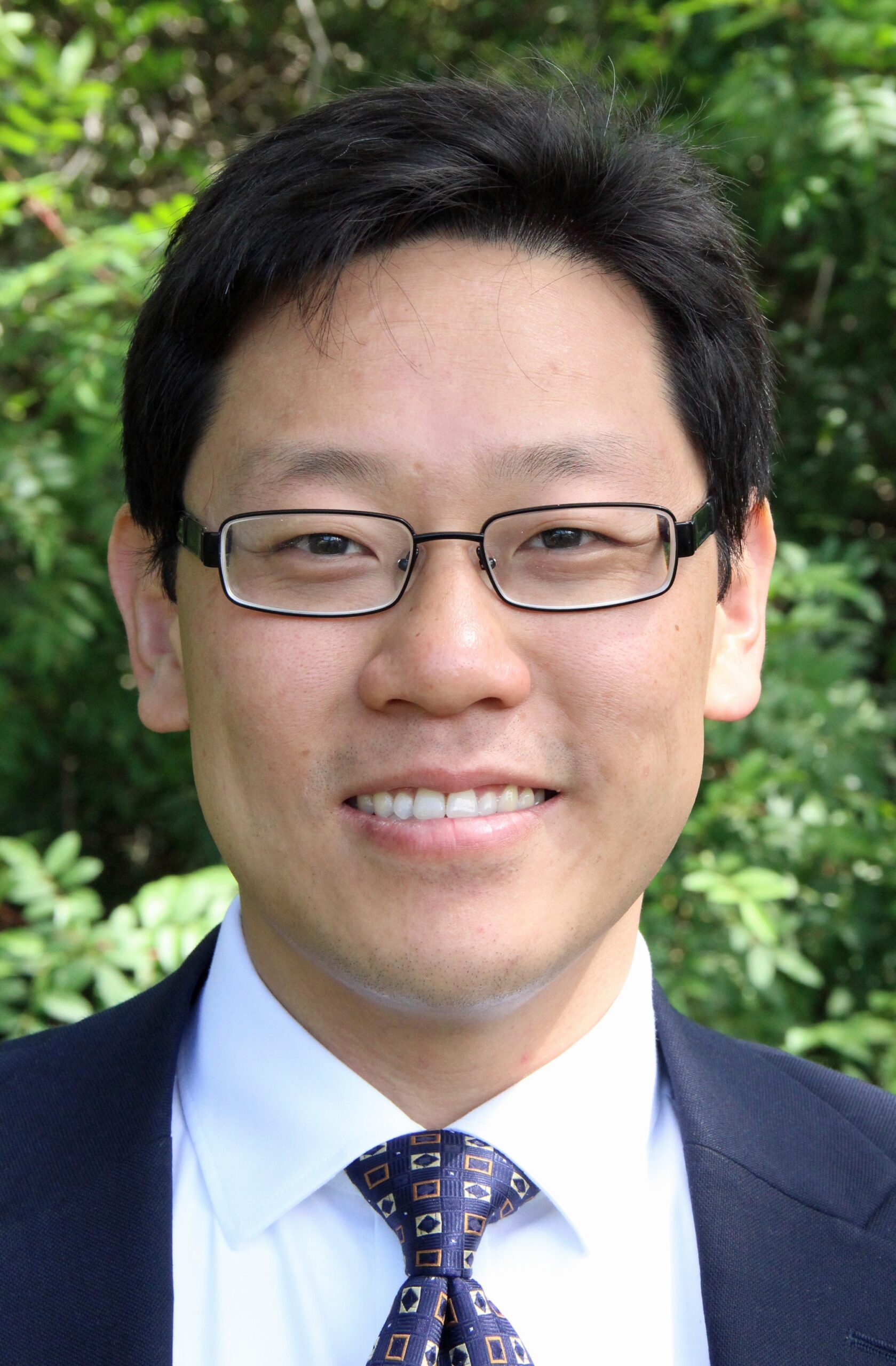
Benedict Nguyen is both a civil lawyer and a pontifically licensed canon lawyer in the Roman Catholic Church. He currently serves as the Assistant Vice President for Student Affairs and Dean of Students at the University of St. Thomas, Houston, and is an Adjunct Professor of Canon Law at St. Mary Seminary, Houston, and an Adjunct Professor for the Avila Institute for Spiritual Formation. He also serves on the Board of Governors of the Canon Law Society of America. He has held numerous positions in several Catholic Dioceses, including the positions of diocesan Chancellor and director of liturgy. He is a national lecturer and a canonical legal consultant for various bishops, dioceses, and organizations throughout the United States.
He holds a Bachelor Degree in Liturgical Musicology from the University of Kansas; a Master of Theological Studies from the University of Dallas; a Pontifical Licentiate degree in Canon Law from the Catholic University of America; and a Doctor of Jurisprudence law degree from the Hamline University School of Law. He is currently completing two additional doctoral degrees: a Doctor of Ministry in Biblical Exposition from the Nashotah House Theological Seminary; and a Doctor of Education from the University of St. Thomas, Houston.
Ben and his wife Beth have five children and seven grandchildren.
Title: Marriage, the Eucharist, and Canon Law: Living What is Believed
Abstract: The interrelatedness of the Sacrament of Matrimony and the Sacrament of the Most Holy Eucharist are not just abstract connections but necessarily entails translations into the reality of life. The canonical laws of the Church are among the most distinct and effective tools of regulating such translations into the lived experience of the faithful, not to substitute for grace but to order the life of the ecclesial society and the members of the Body of Christ such that grace can flourish. This presentation explores how the Church’s beliefs about Marriage and the Eucharist necessarily call for canonical disciplines that foster the truth about these and avoid the scandal of inconsistency between what is believed and what is lived.
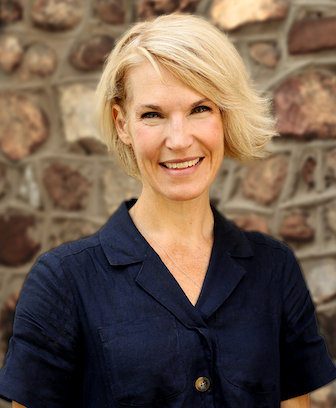
Dr. Sara Pecknold holds a Ph.D. in Musicology with a minor in Vocal Performance from The Catholic University of America, where she served as a lecturer in the History of Sacred Music from 2016 to 2022. Her work has appeared in the Yale Journal of Music and Religion, the Journal of Seventeenth-Century Music, the Brill companion to music at the Habsburg courts, and New Blackfriars. Dr. Pecknold has presented her research at the Annual Conference of the American Musicological Society, the International Institute for Culture, Seton Hall University (the Monsignor Cafone Lecture, 2019), on BBC Three’s Composer of the Week, for The Catholic Daughters of the Americas, and as part of Christendom College’s Beato Fra Angelico Fine Arts series. She currently serves as a Lecturer in Liturgical Music at Christendom College, where she teaches courses on the Theology of Liturgical Music, Devotion to Our Lady in Music and Art, and Pope Benedict XVI’s Writings on Sacred Music, as well as topics in general music history. Also a professional soprano, Dr. Pecknold continues to promote excellence in early sacred music performance, most notably in her direction of Catholic University’s Sacred Music Consort and a newly formed Women’s Schola at Christendom College. She lives in Alexandria, Virginia, with her husband and five children.
Title: The Musical Monstrance: Eucharistic Devotion in the Seventeenth-Century Venetian Motet
Abstract: In 1610, the primicerio of San Marco, Monsignor Giovanni Tiepolo, published a treatise on the Passion of Christ; perhaps the most moving chapter is devoted to the pretiosissmo sangue (“the Most Precious Blood”). Here, Tiepolo compares Our Lord to a compassionate doctor who, rather than letting the blood of his patients, “bleeds” himself, in order to remove the disease of sin and the infection of eternal death.
Tiepolo’s remarks should be understood in light of the myriad ways the Blessed Sacrament was venerated in seventeenth-century Venice, especially at the Basilica of San Marco. This paper examines Venetian Eucharistic music contemporaneous with Tiepolo’s treatise, alongside corresponding devotional practices. What emerges is a picture of the Serene Republic as a city whose communal life is guided by the act of beholding Our Eucharistic Lord, in real monstrances and those constructed in sound, “musical monstrances” for the pilgrim soul.

Dr. Elizabeth Shaw currently serves as interim provost for Catholic International University. She is also a member of the faculty and associate dean for accreditation. She is an associated scholar of the Hildebrand Project and associate editor of two journals, The Review of Metaphysics and the Fellowship of Catholic Scholars Quarterly. Dr. Shaw has taught in the School of Philosophy and the Busch School of Business at the Catholic University of America, and for several years she was research assistant to Catholic intellectual Michael Novak. Dr. Shaw earned PhD and MA degrees in philosophy from Catholic University, and a BS in mathematics from Georgetown University.
Dr. Shaw’s publications include Social Justice Isn’t What You Think It Is (2015; Michael Novak and Paul Adams, coauthors) and three edited volumes: Interpretations: Using the Past to Understand the Present (2018; essays by Jude P. Dougherty), An American and Catholic Life: Essays Dedicated to Michael Novak (2015), and The Myth of Romantic Love and Other Essays (2013; essays by Michael Novak). She is also the author of several scholarly articles, reviews, and book chapters.
Founders Award Recipient
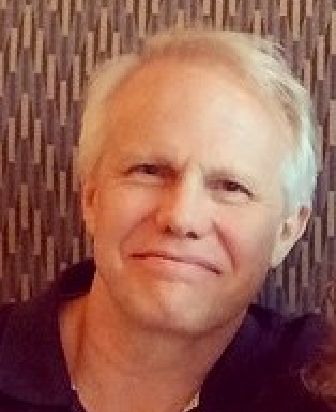
Randall Smith is Full Professor and holds the Miller Endowed Chair of Theology at the University of St. Thomas in Houston, Texas. He did his doctorate under the direction of Ralph McInerny, David Solomon, and Alasdair MacIntyre at the University of Notre Dame. He is the author of six books, among which are Reading the Sermons of Thomas Aquinas: A Beginner’s Guide, Aquinas, Bonaventure, and the Scholastic Culture of Medieval Paris; From Here to Eternity: Reflections on Death, Immortality, and the Resurrection of the Body; and Bonaventure’s Journey of the Soul into God: Context and Commentary. He also writes a regular column regularly for The Catholic Thing.
Title: Eucharist, the Heart of Catholic Education
Abstract: In this talk, Prof. Smith uses visual images of the liberal arts tympanum sculpture from the Cathedral of Our Lady in Chartres to explain the continuing value of the liberal arts and why the Eucharist is the best, perhaps the only, foundation for this kind of “university” education.
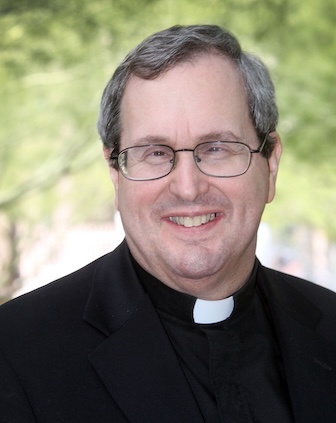
Born in Honolulu, Hawaii on May 16, 1952, Fr. Robert Spitzer is a Catholic Priest in the Jesuit order, and is currently the President of the Magis Center of Reason and Faith (www.magiscenter.com) and the Spitzer Center for Catholic Organizations (www.spitzercenter.org). He is also the Chief Educational Officer for the Ethics and Performance Institute (www.learnepi.com).
Cardinal O’Boyle Award recipient
Title: The Bread of Life and the Laboratory: Eucharistic Belief and Modern Science
Abstract: Over the last 30 years, medical and scientific experts have had a unique opportunity to examine miraculous Eucharistic hosts in Buenos Aires, Argentina (1996), Tixtla, Mexico (2006), and Sokolka, Poland (2008). Fr. Spitzer will discuss the scientific evidence validating the occurrence of living heart tissue growing out of consecrated Eucharistic hosts in these three areas. He will describe the tests performed, the scientific teams performing them, and the remarkable results, indicating the very likely authenticity of all three hosts, particularly the one in Sokolka, Poland which cannot be replicated by either natural or artificial means.
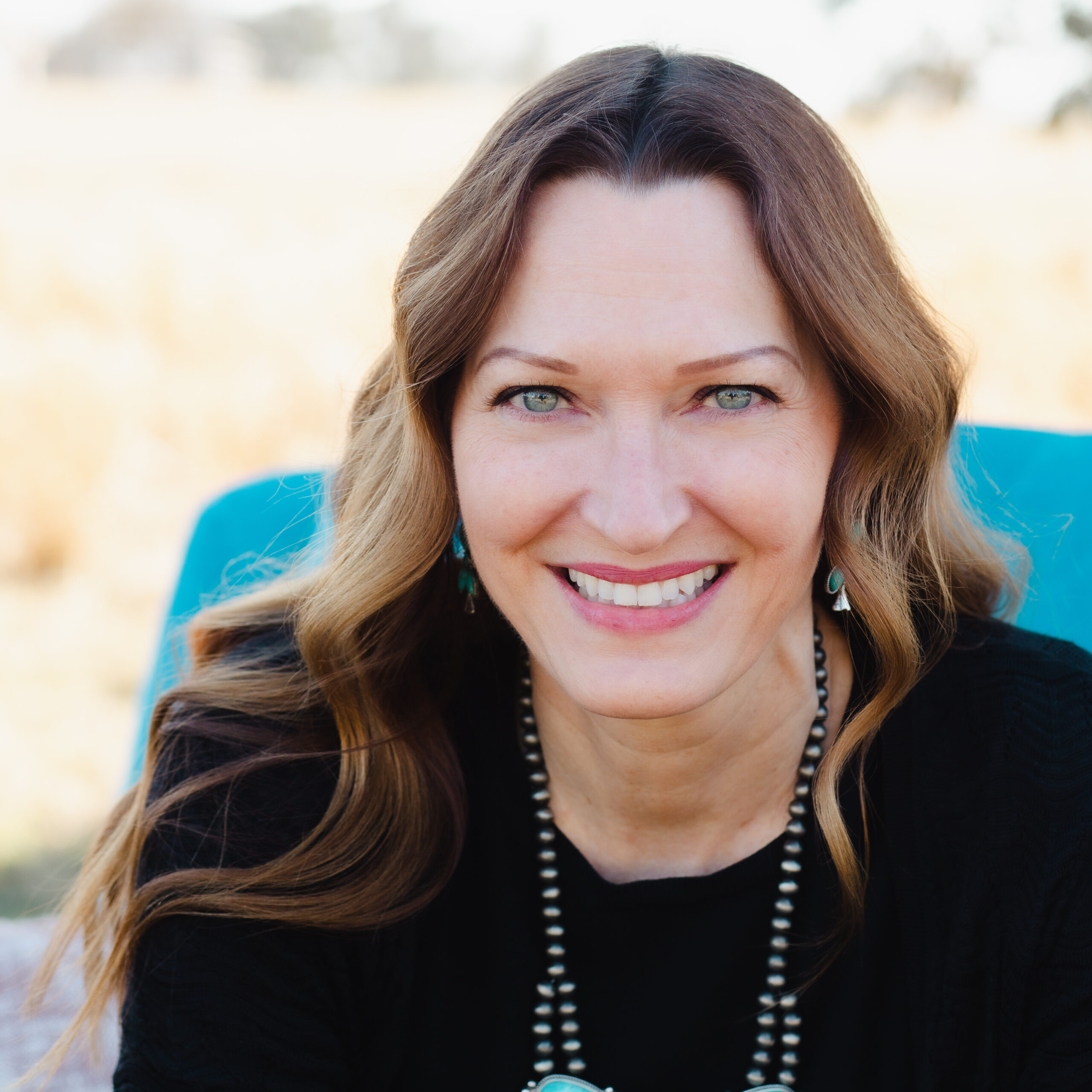
Stacy Trasancos holds advanced degrees in science, philosophy, and theology and is an interdisciplinary writer and educator. She holds a Ph.D. in chemistry, M.A. in systematic philosophy, M.A. in dogmatic theology, and is a doctoral candidate at St. Patrick’s Pontifical University in philosophy. She is the author of six books and has numerous contributions to other books, papers, and interviews. She teaches in the Catholic Studies program at Seton Hall University and for Holy Apostles College and Seminary, where she is the Undergraduate and Dual Enrollment Program Director. Stacy is the wife of Jose Trasancos, mother of seven, and grandmother of seven and counting.
Title: Eucharistic Miracles: Exaggerations, Myths, and Unanswered Questions
Abstract: After being tasked with researching the accounts of Eucharistic miracles for a new book, Dr. Trasancos was disappointed to discover the lack of sound scientific evidence to support the claims repeated uncritically on the internet by Catholic scholars, authors, and personalities. In her talk, she will present her findings, reasoning, and argument that exaggerations, myths, and unanswered questions are doing harm to the faith of believers and would-be believers who seek the truth. Her plea is that Catholics promote the certainty of faith and not succumb to the scientism so rampant in our times.
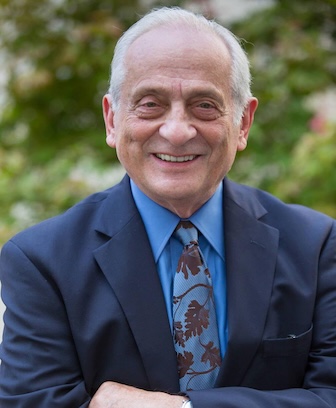
Paul C. Vitz is Professor of Psychology Emeritus at New York University and recently Senior Scholar Emeritus at Divine Mercy University. His work has focused on integrating Christian theology, especially Catholic anthropology, with psychology. His present interest includes:
The psychological importance of fathers; chastity; analog and digital experience. Dr. Vitz’s
books include: Psychology as Religion: The Cult of Self-Worship 2nd ed.; Sigmund Freud’s
Christian Unconscious; Faith of the Fatherless: The Psychology of Atheism 2nd ed.; and The
Self: Beyond the Postmodern Crisis. And recently, 2020, A Catholic Christian Meta-Model of
the Person.. Eds., Vitz, Nordling, & Titus; and Vitz, Ed. 2021. The Complementarity of
Women and Men.
Cardinal Wright Award recipient
Title: The Past Seventy Years of Psychology: A Review by a Catholic Psychologist
This paper describes the 70 plus years of the author’s involvement in and understanding of the development of psychology starting in 1953 with behaviorism and Freudian psychoanalysis. The different theories and approaches, especially to psychotherapy, are briefly noted going from a humanist psychology, to cognitive/behavior, up to and through narrative psychology, forgiveness therapy, and positive virtue based psychology. The recent contributions of a religious nature, such as those that are explicitly Christian and Jewish are then noted. This includes the understanding of Christian redemption as relevant to therapy. This is clear in view of existing secular forms of redemption, for example, self-realization, self-actualization, redemptive narratives, and flourishing through virtue growth. The conclusion presents five major reasons for being optimistic about an increasing acceptance of religion, especially Christianity, in the psychology of the future.

Dr. Savage is currently a Professor of Theology at Franciscan University of Steubenville. She is a recognized scholar of the work of John Paul II.
Title: The Eucharist and the Work of Human Hands: The Sacred Task of the Lay Professions
Abstract: That the mission of the laity is to transform the temporal order has been an explicit teaching of the Church since Pope St. Paul VI promulgated the Second Vatican Council’s decree On the Apostolate of the Laity (Apostolicam Actuositatem) in 1965. Pope St. John Paul II’s own 1988 Apostolic Exhortation on the Vocation of the Laity, Christifideles laici, both affirmed this teaching and gave it new life. Both documents declare that all Christians are baptized into the three-fold office of Christ as Priest, Prophet, and King, tasking them with the great responsibility of advancing God’s plan for the world. The laity discover their vocation in the world; this is their mission field, the place where they live out their baptismal promises. And this is all to the good. But what are the practical implications of this teaching? What is the “sacred task” at the heart of every profession? What is the meaning of human work?
All sessions will take place at the Renaissance Arlington Capital View Hotel.
1:00 p.m. – Mass
2:00 – 3:15 p.m. – Panel I: The Eucharist in Architecture and Music
James McCrery and Sara Pecknold
3:30 – 4:45 p.m. – Panel II: Canon Law and Reception of the Eucharist
Ben Nguyen and Father Gerald E. Murray
5:30 – 6:45 p.m. – Dinner
7:00 p.m. – 8:15 p.m. – Plenary I: Eucharistic Belief and Modern Science
Father Robert Spitzer, S.J.
8:30 p.m. – Compline
7:30 a.m. – Mass
8:15 – 9:00 a.m. – Breakfast
9:00 – 10:15 a.m. – Panel III: Eucharistic Miracles in Scientific and Theological Understanding
Stacy Trasancos and Gerald P. Borsma
10:30 a.m. – 11:45 a.m. – Panel IV: Psychology and Sociology of the Eucharist
Paul Vitz and Margarita Mooney Clayton
12:00 – 1:15 p.m. – Lunch
1:30 – 3:00 p.m. – Contributed Papers
3:15 – 4:30 p.m. – Plenary II: Source and Summit of the University
Randall Smith
5:00 p.m. – Mass Celebrated by Fr. Paul Scalia
St. Rita Catholic Church, Alexandria
6:15 p.m. – Reception followed by Awards Banquet
7:30 a.m. – Mass
8:15 a.m. – Breakfast
9:15 – 10:45 a.m. – Contributed Papers
11:00 a.m. – 12:30 p.m. – Panel V: The Future of the Roman Rite
Michael P. Foley, Msgr. Marc Caron, and Clinton Brand
Renaissance Arlington Capital View Hotel
2800 Potomac Ave
Arlington, VA 22202
703-413-1300
This hotel is near the NoMa-Gallaudet University Metro station, just two stops from the Brookland-Catholic University Metro station. All convention sessions will take place at the Busch School of Business on the campus of The Catholic University of America.

